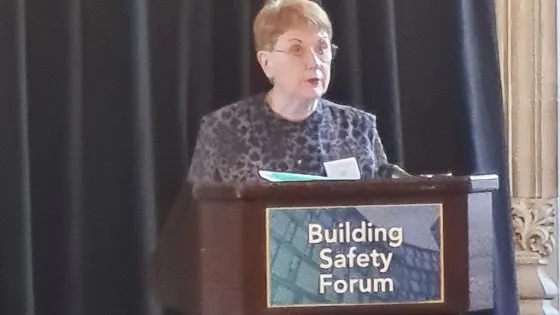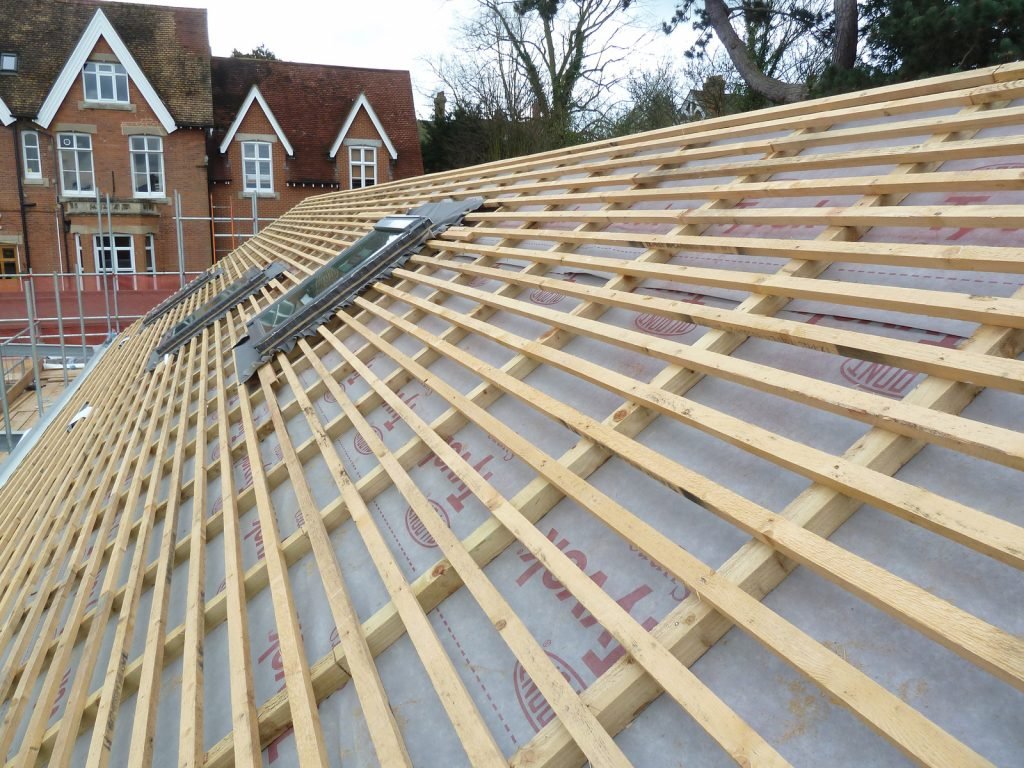
Judith Hackitt speaking at the Building Safety Forum
A newly established panel reviewing the building control system should release its recommendations by the end of this year, its chair has said.
Dame Judith Hackitt was named last week as chair of the panel, established as part of the government’s response to the Grenfell Tower Inquiry’s findings.
It will assess whether building control can be conducted by individuals or entities with a commercial interest.
“I don’t anticipate it taking us beyond the end of this year to issue our recommendations,” Hackitt told Construction News on Thursday (3 April) during the Building Safety Forum 2025 in London.
“Implementation will likely take much longer than that – a year or two, probably.”
Currently, there are two avenues to obtain building control approval. One is via the public sector Local Authority Building Control (LABC). The other is via contractually appointed private sector building inspectors.
“We have this system as a result of changes that were made 20 or more years ago when building control was part-privatised,” said Hackitt.
“My questions are – is that a sustainable model? Do people who are working in building control need to be completely independent and without any commercial interest whatsoever?”
The review panel will also examine building control staffing levels in the context of the profession’s recruitment and retention issues.
“We can’t come up with an idealistic model that then creates further delays in the [building control] system because there aren’t enough people,” Hackitt said. “So we have to look at capacity and what’s workable.”
The Building Safety Regulator (BSR) has overseen the performance of public and private sector building control bodies since 1 October 2023.
“So the model’s already changed somewhat,” Hackitt said. “The real question we have to address on this panel is whether that goes far enough – or whether we need to go even further.”
The BSR required building inspectors to prove their competence last year. However, the regulator had to temporarily change its rules in July after the LABC warned that “a significant number of authorities” would be unable to perform building control.
Asked whether she sees the need for fundamental changes to the building control delivery model, Hackitt said she was going into the review process “with an open mind”.
She added: “I think we have to measure what has happened since 2018 [when her Building a Safer Future report was published]. Have the changes we’ve already made improved things, and what are the effects of those changes on supply and demand [for building control services]? We’ll take a view based on that.”
Hackitt delivered the keynote speech at the 3 April forum, which was hosted by remediation contractor Miller Knight, surveying consultancy TFT, and fire safety consultancy BB7.
She reiterated her call for a culture shift in the construction industry, away from a focus on regulatory compliance towards the proactive pursuit of best practice.
Hackitt added that the green paper on construction product regulation was “the most important” aspect of the government’s response to Sir Martin Moore-Bick’s final report into the June 2017 Grenfell Tower fire.
“This is the proposal for future legislation that will close the hole in the system that I did not have time to look at in my report [Building a Safer Future].
“Go home and read it,” she said, urging delegates to weigh in during the green paper’s consultation period, which ends on 21 May.
“Users of construction products need to get the message to government that you need reform to happen” even if construction product manufacturers raise objections, Hackitt said.
She concluded: “Unless we get this fixed, we’re still standing on thin ice. We need to have much better product assurance and product testing.”











